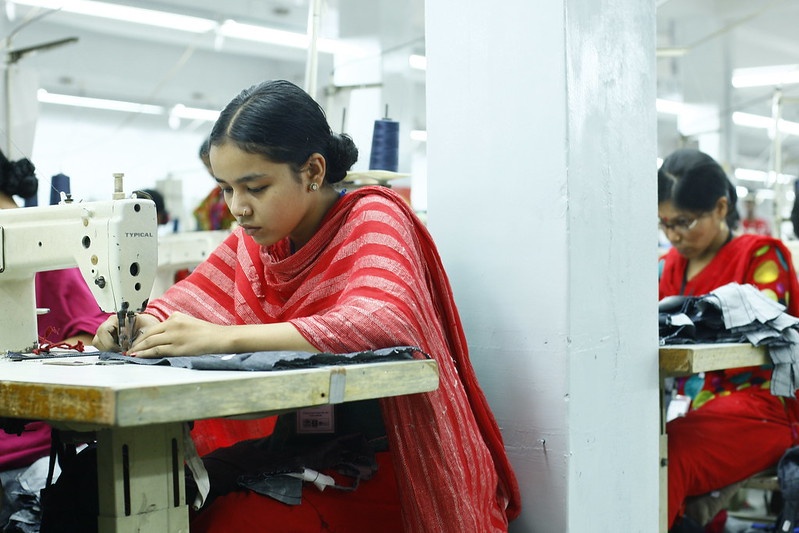7 February, 2023More than 100 participants from IndustriALL affiliates in the textile and garment sector met online on 2-3 February for the first world conference since 2016. Discussions focused on advancing workers’ rights, building union power, confronting global capital, and ensuring sustainable industrial policy, as well as women in the sector.
IndustriALL general secretary Atle Høie said:
“We are stepping up our campaign for comprehensive economic sanctions against Myanmar and are working hard with brands to exit the country responsibly and protect workers at the same time.”
Discussions centered around providing strong support for organizing campaigns, especially using global framework agreements to protect workers’ rights to form trade unions and bargain collectively. The Migrant Resource Center in Mauritius gave an update on the mobile app, Just Good Work Mauritius. This app, developed last year in collaboration with IndustriALL, Anti Slavery International and online clothing brand ASOS, provides information and education on workers’ rights. Migrant workers are informed about their rights and can report cases of abuse. The information is accessible in Bangladeshi, English and Malagasy.
Campaigning for safe factories is central in the sector, and in December 2022 the International Accord was expanded to Pakistan. Affiliates from the MENA region added that a regional campaign on safe factories has been launched and called on the expansion of the International Accord to the region.
Affiliates pledged support for trade union networks at multinational manufacturers. Interventions from Bangladesh spoke of the benefits of being part of the Coats global trade union network and how the network supported the reduction in contractual work, helped to ensure that wages were above the national minimum level and promoted industrial relations.
In a report ‘Risks of gender-based violence and harassment: union responses in the mining, garments and electronics sectors’, Jane Pillinger, highlighted the risks faced by women in the garment sector, like employment insecurity, low wages, gender inequalities and discrimination, and dangers travelling to and from work. To combat these risks, women need a strong presence in leadership positions to raise awareness, and for collective bargaining agreements to include clauses on GBVH and creating safe complaints systems for women.
Indonesia and the MENA Women’s networks showcased the Zero Tolerance Campaign. Unions and employers in the H&M, Nike and Adidas supply chains attended a social dialogue conference for a joint commitment, signed by ten unions and companies. Through the policy, unions and employers will develop strategies on how to ensure that reported sexual harassment cases are not left unresolved. The policy will be integrated into collective agreements and ensure safe workspaces and will also raise awareness on zero tolerance of violence and sexual harassment.
A four-year sectoral action plan was debated and approved. The action plan on industry wide collective bargaining focuses on promoting industry bargaining to reduce inequality, lift wages and conditions and prevent lower standards being used to give companies a competitive advantage. The Southern African Clothing and Textile Workers’ Union (SACTWU) spoke about their collective bargaining process, indicating that bargaining was mandated by the members and that mandates are collected from members before negotiations. SACTWU highlighted their Covid-19 agreement where workers received full pay during the hard lock down, secured through negotiations between unions and employers.
Christina Hajagos-Clausen, IndustriALL textile director, said:
“Collective action - the hallmark and the power of the international labour movement- has given us the ability and the tools to transform the global supply chain. We must make sure that our members’ lives improve. IndustriALL is committed to empowering a sectorial solution by pressuring and securing the commitment of global brands, suppliers and governments in our fight for decent work. We will continue our campaign for an industrial relations system that changes the balance of power in the supply chain.”
Participants chose to elect four co-chairs for the sector. There will be two men and two women, two of the co-chairs will be from production countries and two from consumption/brand countries.
